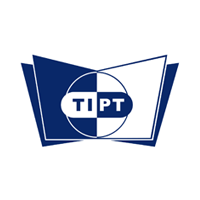
In the pharmaceutical industry, quality assurance (QA) is essential for ensuring that pharmaceutical products are manufactured to a safe and consistent standard. QA is a very broad field that refers to any aspect that may affect a drug’s quality during its research, development, manufacturing, and sales phases. QA professionals are responsible for instituting a range of practices that help guarantee a drug’s quality.
Since QA is such a broad field, it can be helpful to look at specific ways that it is implemented in practice. Here’s a look at a few concrete examples of how QA works in real life so you can get a better idea of why it is so important in the pharmaceutical industry.
Quality Assurance Training Helps Ensure Drugs Work Safely and as Intended
A drug that doesn’t work as intended or that is defective in some way can present a threat to public health. Ensuring that pharmaceutical products are safe and effective is the primary goal of any pharmaceutical company’s QA department. There are a number of methods and procedures QA departments use to achieve this goal.
For example, QA professionals test for drug stability, which is a measure of how consistent a pharmaceutical product’s chemical, therapeutic, physical, and other properties remain over time and in certain conditions. Drug stability is an important topic covered in quality assurance courses, since it has a big impact on a drug’s potential safety and efficacy. A drug that degrades when exposed to different environmental conditions may have an adverse impact on patients, which is why QA professionals investigate if a drug’s chemical properties change if it is stored at a certain temperature. The results of these investigations can help drug manufacturers develop guidelines for safe and proper storage of the drug.

Quality Assurance Helps Pharmaceutical Companies Stay in Compliance with the Law
Due to their impact on public health, pharmaceutical products and pharmaceutical QA are highly regulated. There are many laws and rules that pharmaceutical companies must comply with before they can sell and market a pharmaceutical product. Part of a QA professional’s job is to assist companies with regulatory compliance, which can be achieved in a number of ways.
For instance, as part of their quality assurance training, students learn about good manufacturing practices (GMP). GMP is a series of measures that drug manufacturers must comply with to ensure their drugs are produced to a consistent and reliable standard. In Canada, Health Canada conducts inspections of drug manufacturing facilities to ensure they are complying with GMP standards. These inspections are required in order for the manufacturing facility to be licensed—and a facility needs to be licensed in order to legally manufacture pharmaceuticals in Canada. A QA professional implements various measures at manufacturing facilities, such as calibrating equipment, maintaining documentation, and conducting quality tests, that are covered by GMP and that can help a facility pass its inspection.

Quality Assurance Training Helps Pharmaceutical Companies Maintain Their Reputations
The public wants assurances that the pharmaceutical drugs they take are safe and useful. If a pharmaceutical manufacturer is found not to be in compliance with QA regulations, or if they have created a pharmaceutical product that is either unsafe or doesn’t work as intended, the public may lose faith in the quality of that company’s products. By ensuring that measures are in place to guarantee product quality, a QA professional plays a significant role in reassuring the public that a certain drug—and, by extension, that drug’s manufacturer—can be trusted. In turn, this helps pharmaceutical companies maintain their public reputations, which is essential for business success.
Are you ready for a new career?
Contact the Toronto Institute of Pharmaceutical Technology to learn about our quality assurance diploma.

Thank you for such a great information.
Ok
Thank you for this piece of information it is so much benefiting.
QA training is vital in the pharmaceutical industry. Thank you for this knowledge!
The Author explained the important role and responsibilities of Quality assurance in the Pharma Industry for Compliance and GMP. Why QA training and what are the useful benefits for professionals etc..
What is the growth in QA, i was working in that stream from past 5 yrs and am not seeing any gwoth.
Please assist in next level of training or couching which will help.